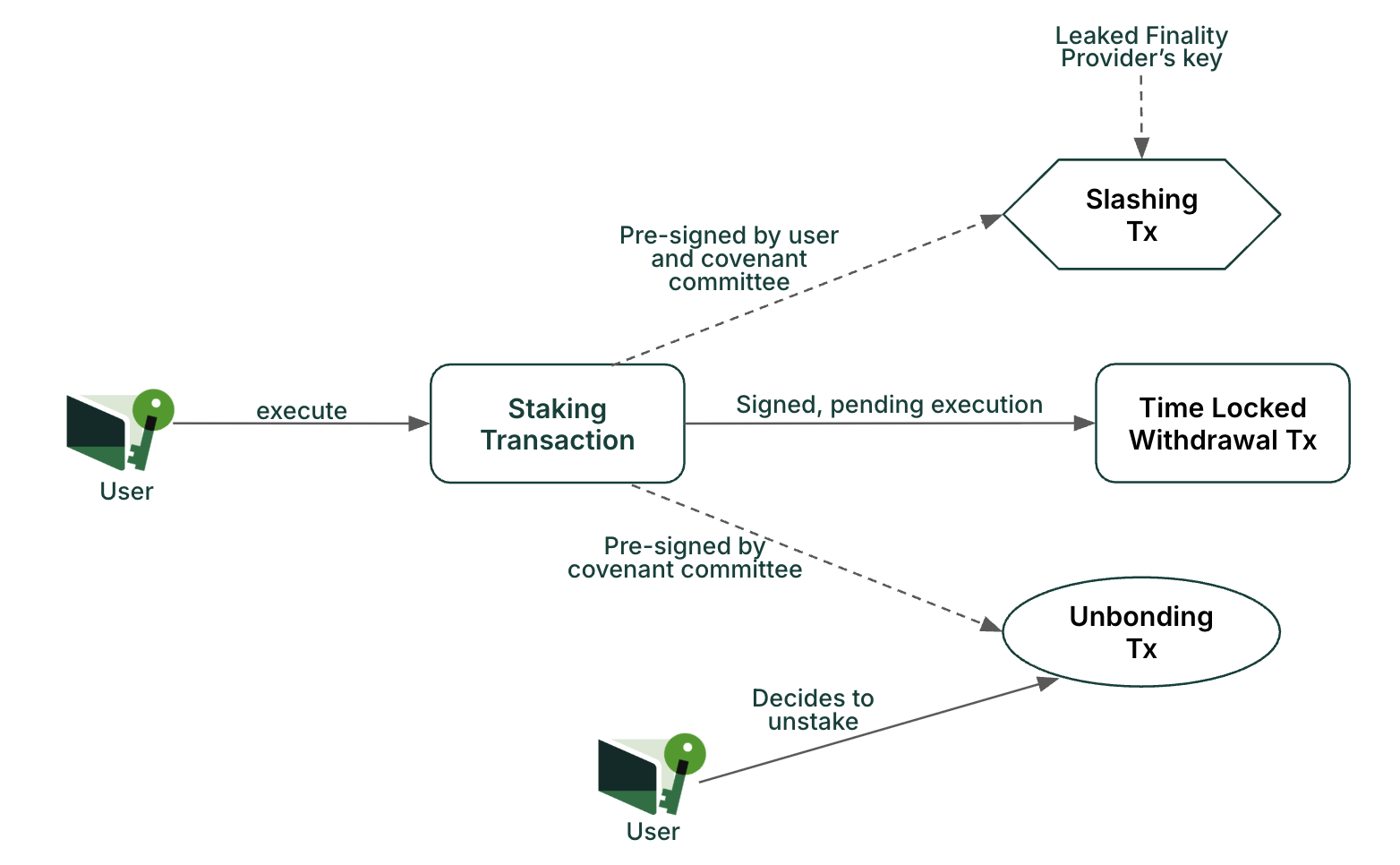Babylon 101
A simple explanation of BTC staking on Babylon
Babylon enables Bitcoin staking directly on the Bitcoin blockchain without requiring your BTC to leave the network or even your wallet. Staking BTC via Babylon allows you to secure multiple chains with the same BTC and earn rewards denominated in their native tokens.
Bitcoin-backed Security and Timestamping
- Babylon anchors its blockchain state to Bitcoin through cryptographic timestamps, creating immutable checkpoints
- This mechanism allows other chains to be secured by staked BTC, as they can reference the timestamps on Bitcoin during forks
Finality Providers
- Analogous to validators in Proof of Stake networks
- You delegate your BTC to a Finality Provider (e.g. Figment)
- Finality Providers secure both the Babylon Chain and other Bitcoin Secured Networks (BSNs) with the BTC delegated to them
Bitcoin Staking with Babylon: UTXO and Transaction Lifecycle
Babylon leverages Bitcoin's Unspent Transaction Output (UTXO) model for staking. Each UTXO represents spendable BTC at a specific address. When staking with Babylon, a new UTXO is created with three potential spending paths:
- Normal withdrawal after timelock expiration
- Early unbonding path
- Slashing path (if the Finality Provider misbehaves)
A Babylon staking transaction establishes three conditions for spending staked BTC, managed through the UTXO:
- Stake
- Initial transaction that locks BTC with specific spending conditions
- Pre-signed by both the staker and the Covenant Committee
- Specifies the chosen Finality Provider and staking period
- Unbond
- Optional early exit before the timelock expiration
- Pre-signed by the Covenant Committee
- Allows retrieval of BTC earlier than planned
- Withdraw
- Makes BTC spendable again
- Automatically executes after the timelock expiration (minimum 7 days)
- Returns staked BTC to the staker's full control
This process ensures the security and immutability of staked BTC within the Babylon network.

Security Mechanism: Schnorr Signatures and Slashing
- Without relying on smart contracts, Babylon uses its Extractable One-Time Signature (EOTS) system, built upon Bitcoin's Schnorr signatures, to enable slashing
- If a Finality Provider signs two different blocks at the same height (double signing):
- The two Schnorr signatures can be mathematically combined to extract the Finality Provider's private key
- This "leaked key" can only be used for one specific purpose: triggering slashing
- The slashing output is pre-defined in your staking transaction
- If triggered, it burns the portion of staked funds predefined in your staking transaction and returns the rest to you
- Even when a Finality Provider's key is compromised, they cannot steal your BTC - the key can only execute the pre-approved slashing condition
Earn Staking Rewards
- Staking rewards on Babylon is estimated to generate 3-5%+ annually
- Rewards are distributed in the form of:
- $BABY tokens (Babylon's native token)
- Tokens from Bitcoin Secured Networks (BSNs)
Get Started: Stake BTC with Figment
Figment is a leading provider of staking infrastructure and actively supports Babylon as a Finality Provider. You can choose to stake your BTC with Figment through the Babylon dashboard. Figment also offers solutions such as embeddable widget or API integrations for institutional clients interested in Babylon staking.
Updated 4 months ago
